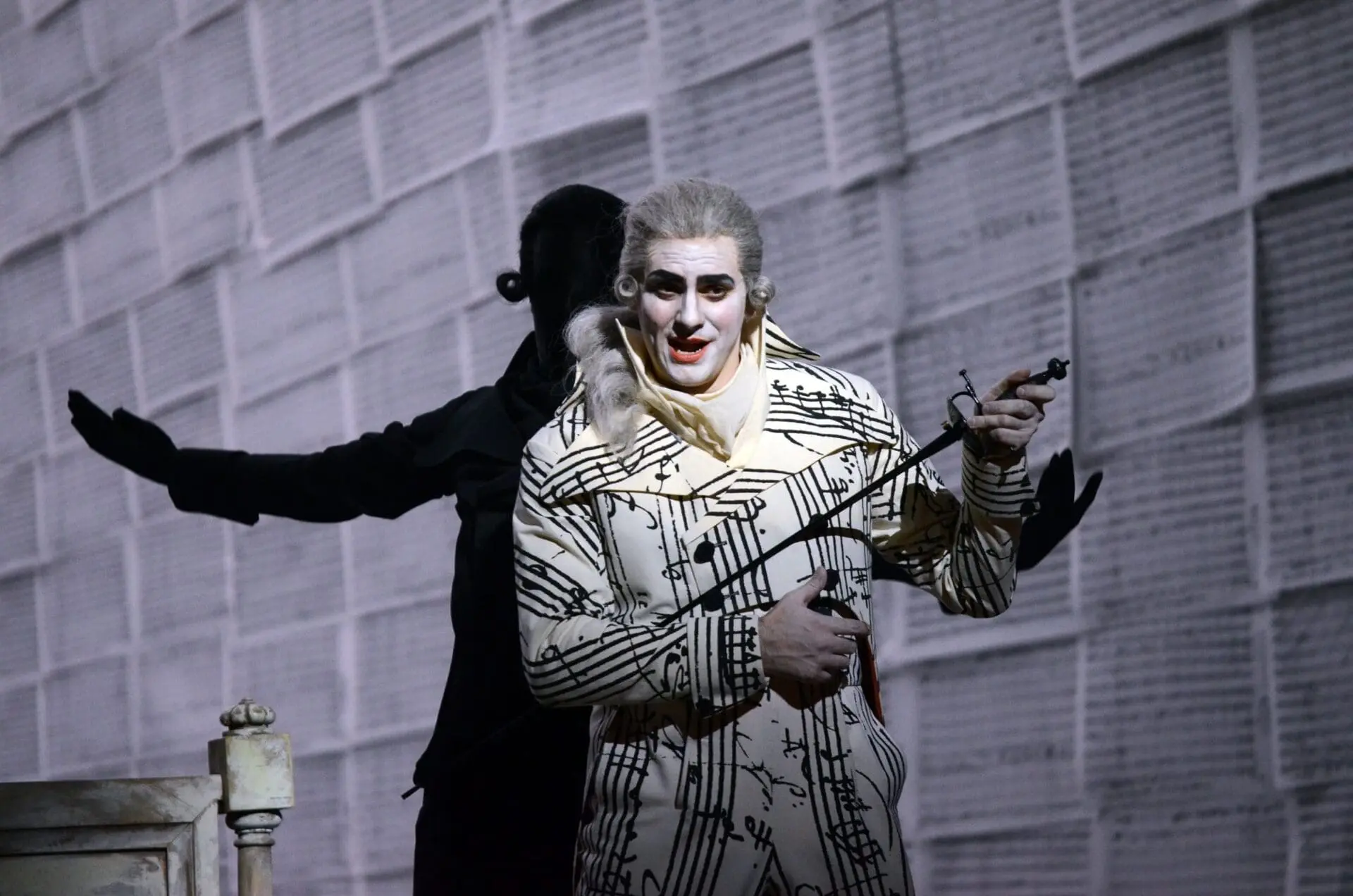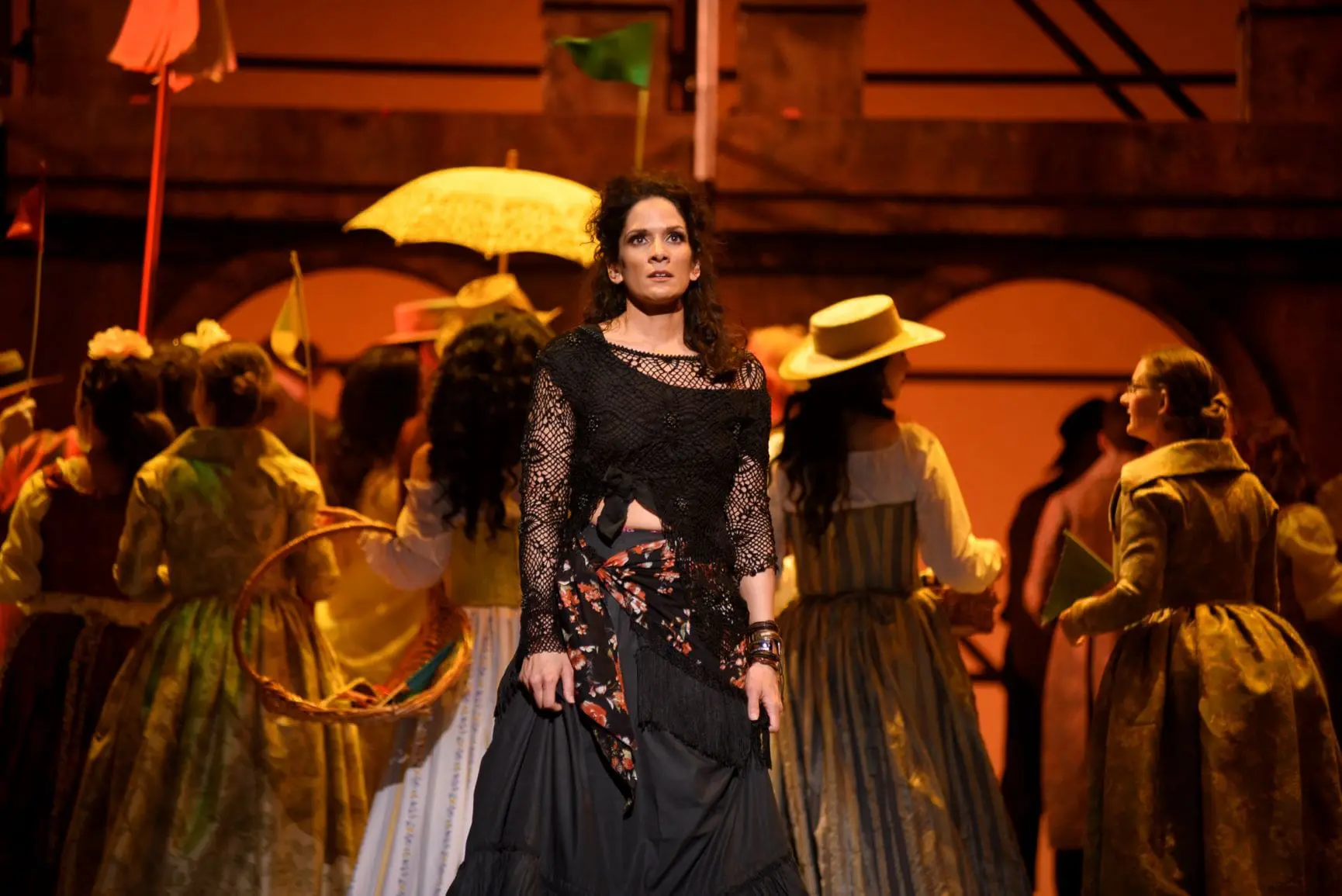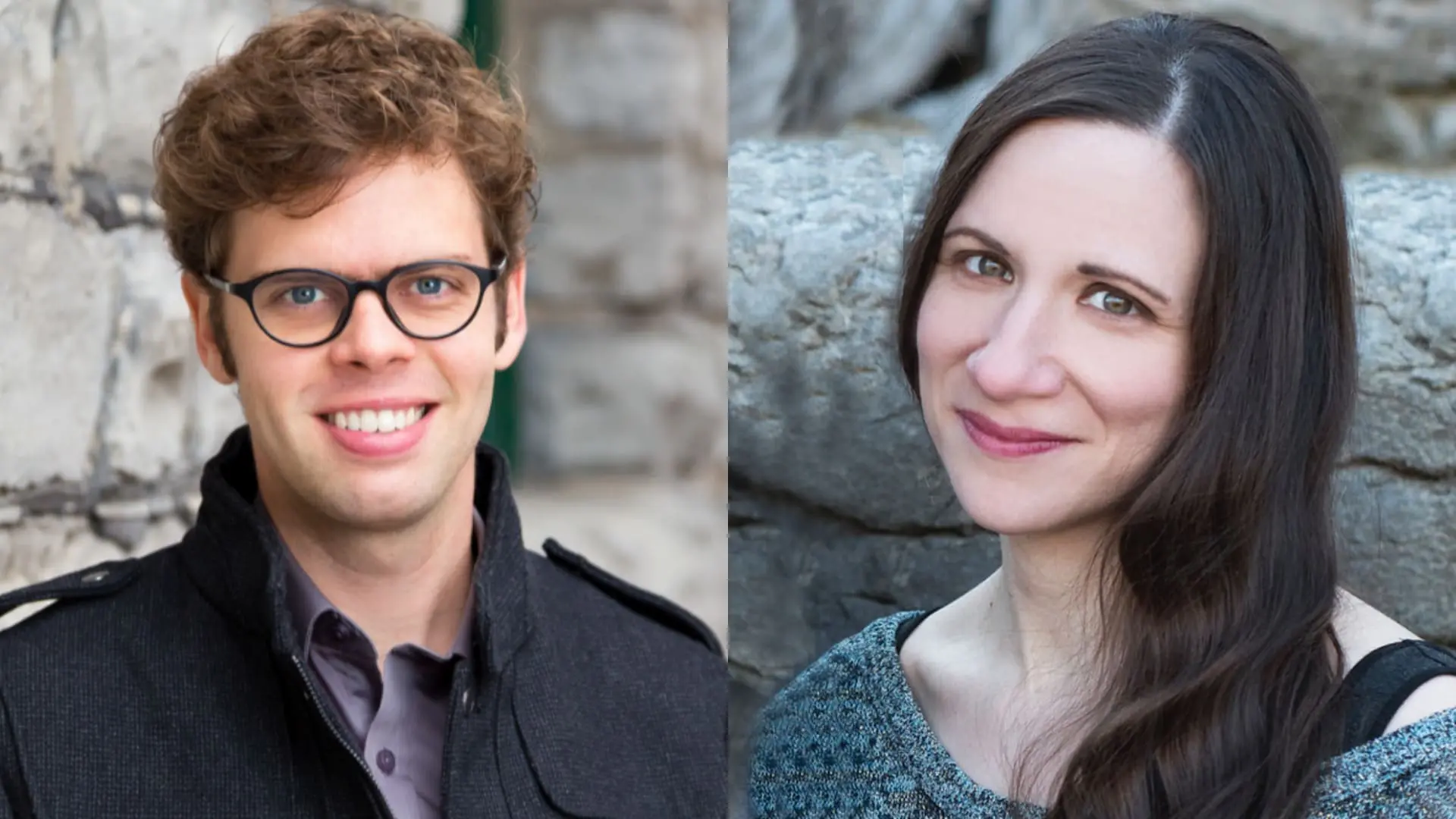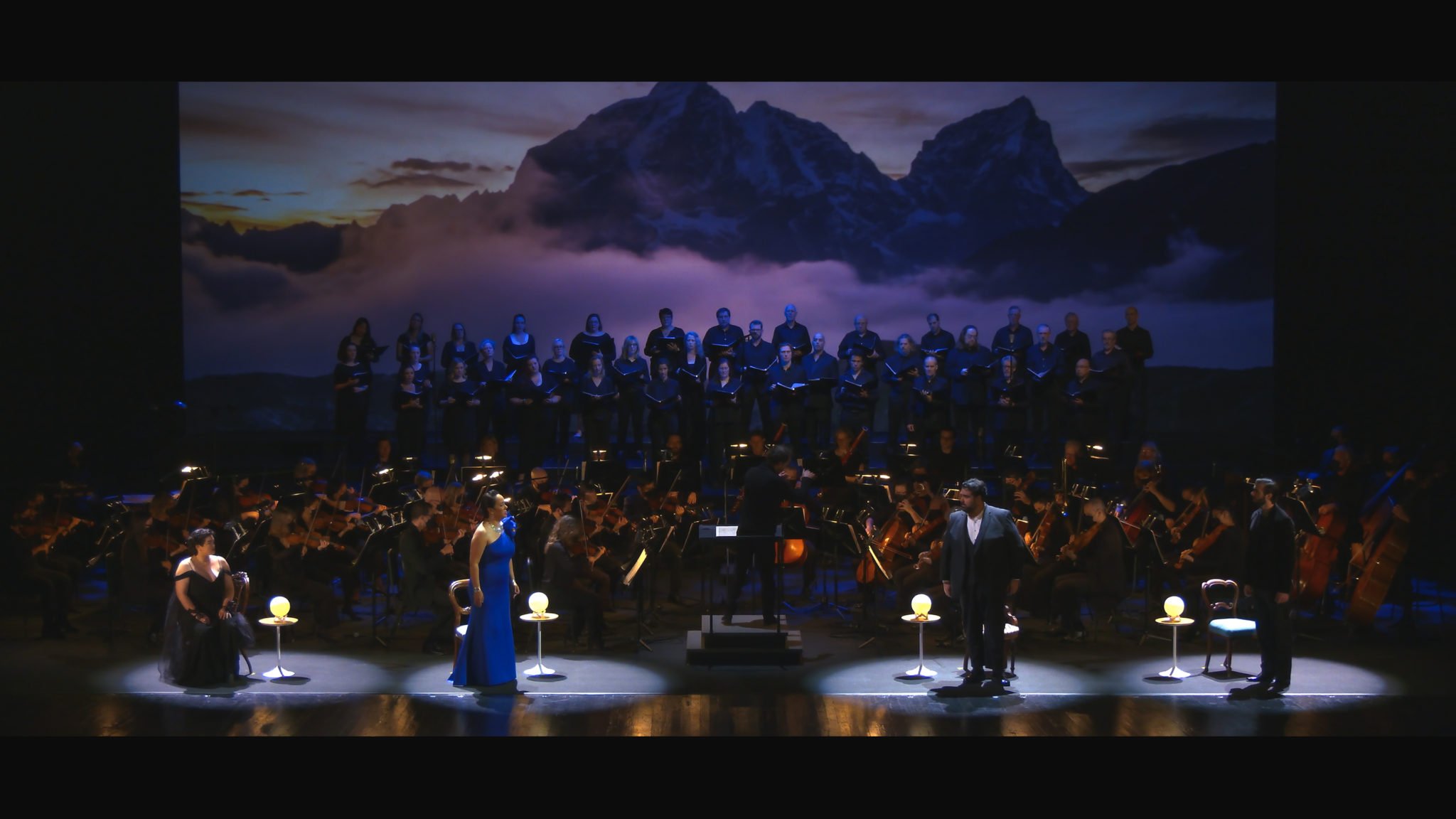The recent cold snap in Toronto isn’t bothering Wilhelm Schwinghammer. “I’m used to this being from Bavaria!” he says, his deep voice rumbling with a laugh.
The busy bass is currently in the midst of rehearsals with the Canadian Opera Company for Elektra (opening Jan. 26th), in the small but pivotal role of Orest, the brother of the title character (Christine Goerke), who murders their mother Klytämnestra (Susan Bullock) and her lover, Aegisth (Michael Schade).This marks Schwinghammer’s COC debut and his second time performing the role of Orest. “Everything is running well,” he says, “we have very good rehearsals with Christine Goerke, and with our maestro, [COC Music Director] Johannes Debus.”
Schwinghammer’s rise was hardly what might be called meteoric, but it is a portrait of dedication and careful cultivation. In 2003, he became a member of the International Opera Studio at Staatsoper Hamburg and subsequently joined the house ensemble in 2006, where he sang everything from bit parts to larger roles like Sparafucile in Verdi’s Rigoletto, Leporello in Mozart’s Don Giovanni, and King Marke in Wagner’s Tristan und Isolde. Schwinghammer estimates performing between 70 and 75 roles over his 14 years in Hamburg, and thinks the ensemble system provides solid grounding for a budding singer, despite (or maybe because of) the hectic pace.
“Sometimes it’s a little bit too much if you sing [Pfitzner’s] Palestrina and the next day you have Flying Dutchman and then a Figaro… sometimes it’s a little on the edge, but if you get through the system, it’s such a very good base for you to build up your career,” he says. “Not everybody is made for an ensemble—some singers want to be famous within one or two years, but this is not my idea. My philosophy is to build up a career slowly, and to get to know the repertoire, and then to have a very stable technique. Then later you can sing the bigger things like Wagner and Strauss.”
Schwinghammer has been performing the works of both composers for several years. As well as numerous performances in Hamburg, he appeared in a production of Salome at Salzburg’s Easter Festival in 2011 under the baton of Sir Simon Rattle, and his first appearance at the famed Bayreuth Festival was in 2013 (in Lohengrin), where he subsequently returned for the 2014 and 2015 seasons. This summer he’ll appear in five works at the annual Wagner festival: in Parsifal, conducted by Semyon Bychkov; in Die Meistersinger von Nürnberg with maestro Philippe Jordan; and in Tannhäuser under Valery Gergiev. It will be Schwinghammer’s first time working with all three.
“Every conductor is different, and every singer is different,” he says thoughtfully, “so when you work together, you’re finding the same language. The better the conductor, the easier it is to work with them. You have to be flexible, and then you find the way together, especially if you’re trying something new or trying out some new [vocal] colours.”
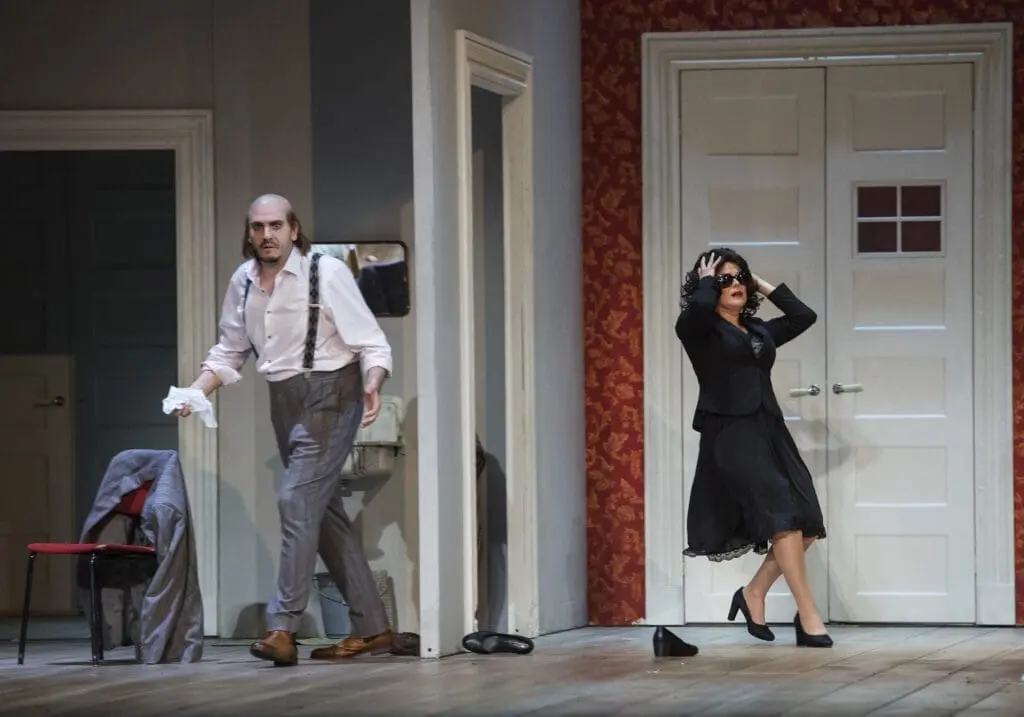
Wilhelm Schwinghammer (Baron Ochs) and Marie-Louise Granström (Annina) in Royal Opera House Stockholm’s Der Rosenkavalier. Photo: Sara Strandlund
This past May he made his role debut as Baron Ochs in Strauss’s Der Rosenkavalier with Alan Gilbert at the Royal Swedish Opera. It was, says Schwinghammer, a lesson in the centrality of thorough preparedness. “If you know the music, the text, the style, everything, then you figure out together the common language and the flow and the pulse, the tempi… but it’s the preparation, and yes, doing your homework.”
How far can preparation take an artist if they’re working with a director who has a contemporary approach to staging? Again, says Schwinghammer, it ties back to the score; a seemingly outlandish idea works if it has sonic roots, and even more beneficial is a director with a musical background. Schwinghammer’s appearance in Der Rosenkavalier in Stockholm last May was directed by Christof Loy, while the 2015 Staatsoper Hamburg production of Le nozze di Figaro (in which he sang the title role) was staged by Stefan Herheim. Both directors’ work is usually labeled as Regieoper, that controversial category of unconventional opera staging which strongly contrasts with more literalist approaches.

Wilhelm Schwinghammer (Ré di Scozia) in Vienna State Opera’s Ariodante. Photo: Wiener Staatsoper/Michael Pöhn
“Hernheim and Loy are so fantastic because they know the music so well and they come from music,” he says. “Stefan was a cello player, and he knows every note of whatever he directs! Every single note, whether Salome in Salzburg or Figaro in Hamburg, he can tell you what every single thing is in the score, which instrument, which line—he does all his scenery based on the music, not against it. That helps us singers so much. It’s so logical and so organic that [the performance] comes automatically. And it’s the same with Christof Loy. It’s not a question of traditional or modern; it’s a question of understanding the music to bring it alive.”
Click here for more information about dates and tickets for Canadian Opera Company’s Elektra.

